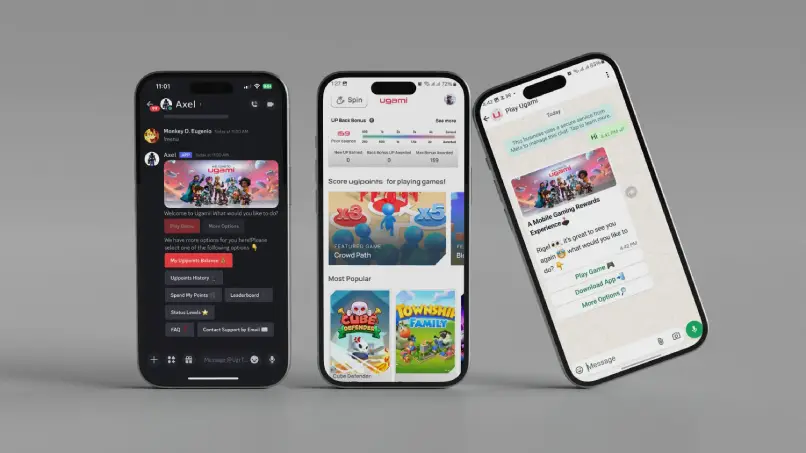Just How Play-to-Earn Incentives Are Transforming the Video Gaming Experience
This improvement invites players to spend not just their time but also their monetary sources, cultivating a sense of ownership and much deeper engagement within video game ecological communities. What ramifications could this have for the market and its gamers?

Development of Video Gaming Models
The landscape of gaming has gone through a substantial change over the decades, developing from typical pay-to-play models to a lot more cutting-edge structures that prioritize customer interaction and money making. Video games were mostly sold as standalone items, needing upfront settlements for gain access to. This model, while effective in creating profits, typically minimal gamer communication and area structure.

Recently, the increase of blockchain innovation has actually presented play-to-earn systems that basically alter video gaming dynamics. These designs not just give a system for players to earn rewards yet likewise equalize the gaming economic climate, permitting users to have in-game properties. This evolution shows a wider fad towards community-driven experiences, where programmers and players work together in shaping the video gaming landscape, ultimately redefining just how worth is regarded in the pc gaming sector.
Advantages of Play-to-Earn Systems
Unlocking new opportunities for player interaction, play-to-earn systems use a series of benefits that essentially boost the pc gaming experience. These systems empower players by offering tangible incentives for their effort and time, promoting a feeling of ownership and financial investment in the game. This intrinsic motivation drives players to engage more deeply, discovering game auto mechanics and areas that they might otherwise neglect.
Moreover, play-to-earn models democratize video gaming by leveling the having fun area. Players from various backgrounds can maximize their abilities and imagination, allowing brand-new participants to experience monetary advantages that were traditionally scheduled for programmers and publishers. This shift motivates a much more varied player base, improving the video gaming ecological community with varied point of views and experiences.
Furthermore, play-to-earn systems advertise neighborhood structure, as players work together and contend within decentralized environments. This communication cultivates social links that boost pleasure and retention, as players really feel a feeling of belonging.
Lastly, these systems can cause raised durability for games, as regular player engagement often translates into sustained rate of interest and investment in future iterations or developments, making sure a vivid pc gaming landscape.
Financial Influence On Gamers
Play-to-earn systems not only improve gamer interaction yet also have considerable economic ramifications for individuals included. These systems allow gamers to monetize their time and skills, transforming video gaming from a recreation right into a practical income source. As players make copyright or in-game properties that can be traded Look At This or sold in real-world markets, they gain financial incentives that can dramatically influence their individual economies.
The financial version promotes a new age of entrepreneurship, as players can invest in various video gaming ecosystems or establish approaches to maximize their profits. This capacity for income generation draws in a varied market, including those in regions with minimal job opportunities - play to earn rewards. Consequently, numerous gamers are currently watching gaming not equally as entertainment however as a pathway to financial empowerment.
Nonetheless, it is vital to recognize the volatility linked with cryptocurrencies and the capacity for market changes to influence profits. Players should navigate these risks while stabilizing their gaming and monetary activities. On the whole, the economic effect on gamers is profound, reshaping their relationship with video gaming and opening up methods for wealth development in a progressively electronic economic climate.
Neighborhood Building in P2E Games

Players in P2E atmospheres regularly create guilds or partnerships, producing networks that help with source sharing, tactical preparation, and shared support. These groups usually take part in cooperative goals or competitors, further reinforcing their bonds and boosting the total pc gaming experience. Additionally, community-driven events, such as tournaments and social celebrations, offer to unite gamers, foster sociability, and incentivize involvement.
Moreover, designers proactively engage with their communities, go to these guys including comments and tips that form game advancement. This joint technique not only equips gamers yet likewise guarantees that games develop in placement with gamer passions, enhancing satisfaction and long-lasting interaction. Eventually, community structure in P2E video games is not just an attribute; it is a fundamental facet that transforms the pc gaming landscape right into a more inclusive and interactive atmosphere.
Future Trends in Video Gaming
The pc gaming market's development is poised to accept several transformative trends that will certainly redefine gamer involvement and experience. One of one of the most substantial trends is the combination of expert system (AI) to create even more tailored pc gaming environments. AI can assess gamer behavior and choices, enabling developers to customize experiences that resonate deeply with private users.
In addition, the introduction of digital and enhanced reality (VR/AR) modern technologies is readied to boost immersion, using gamers the ability to connect with digital globes in extraordinary Check This Out ways. This will certainly not just raise gameplay but also foster social connections, as players can work together and compete in shared settings.
In addition, the increase of blockchain innovation will certainly remain to affect the video gaming landscape, enabling true ownership of in-game possessions with non-fungible symbols (NFTs) This pattern will empower gamers to trade and monetize their gaming experiences, further obscuring the lines between pc gaming and investment.
Conclusion
By incorporating economic incentives right into gameplay, players are significantly engaged, promoting a sense of possession and investment in digital atmospheres. As these fads continue to evolve, the obscured lines between enjoyment and investment will likely redefine the future of pc gaming, shaping new experiences for gamers worldwide.